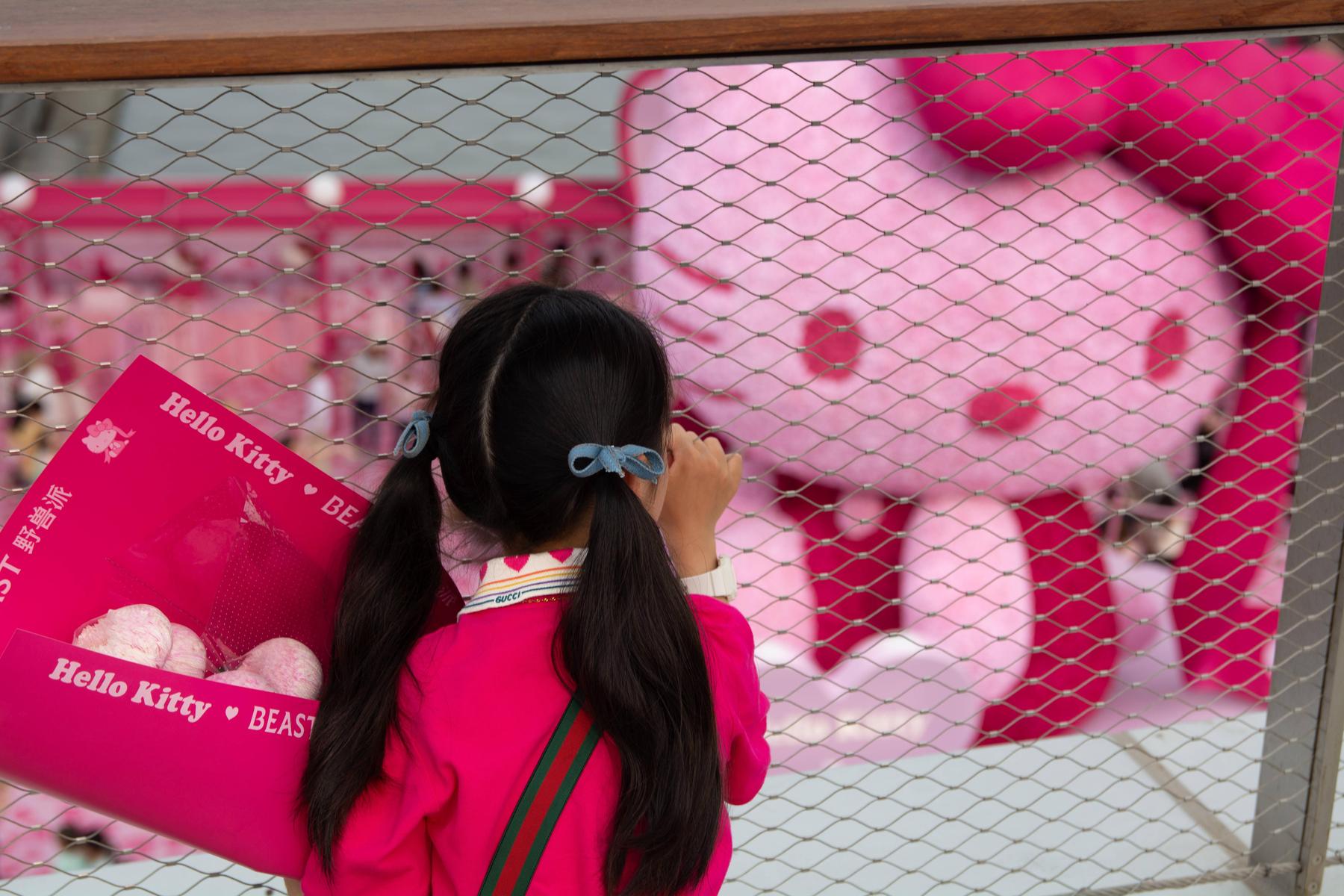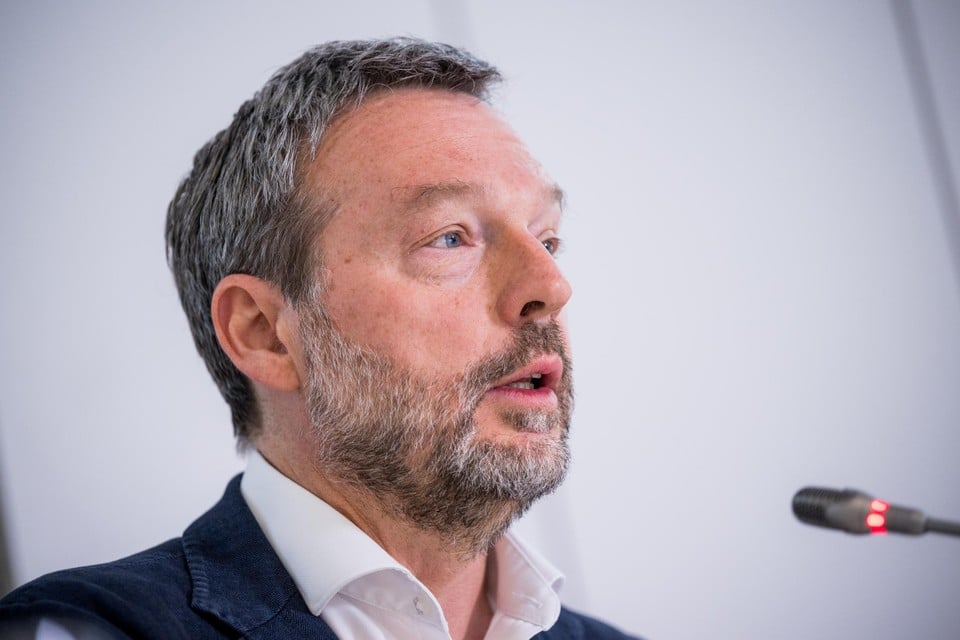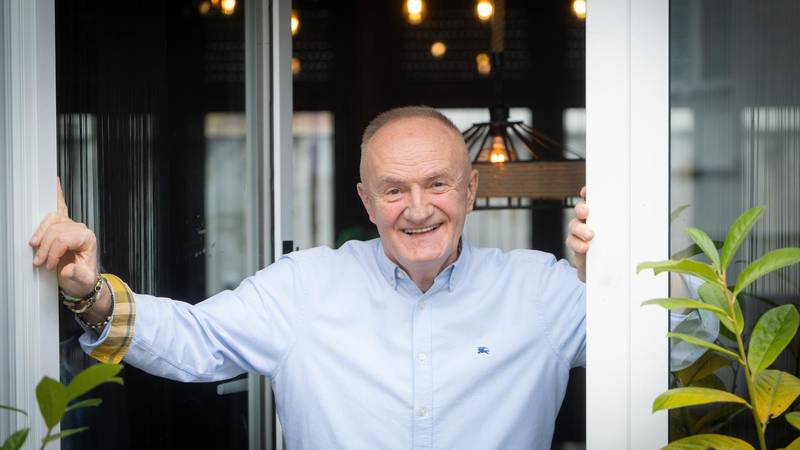Column | Stop warming up without saving the planet
:format(jpeg):fill(f8f8f8,true)/s3/static.nrc.nl/taxonomy/fffe3a8-Kuipers%2520Munneke%252C%2520Peter%25201280.png)
At our home we are busy making plans for the summer vacation. Not all our ideas are greeted by the children with the same amount of enthusiasm. Yet in the introductory negotiations, my wife and I dragged the four -day hut tour out of the fire in the Dolomites. We are now waiting for our children’s counter proposals. The last thing I heard from them is that they would like to go to Slovenia for a few days. You can rafts there. And the wine seems to be tasty. For us then, not for the children.
Fortunately we can worry about the holiday. Our income is stable, we are healthy, and we do not quit each other out of the tent. If you argue you are only busy with the present. There is no time for later. Just look at The Hague. There the future squeaking comes to a halt. Also the fickle of America who has the news in its grip makes the look in the long term fade. All energy only goes to determination of position. The space is not for course and destination.
So someone who demands attention for the climate and, I call what, the quality of life of our planet, it doesn’t have easy now. That is typically a subject that you only get to when you can go through one door a bit. Only later, if trade wars are settled and our cabinet will be stable, will the view of the future withdraw from the mist of the present.
Fortunately in science it continues to revolve around the long term. If ministers and administrators do not force her to interfere with urgent current events (for example, or cutbacks), a scientist prefers to lose himself in the views of how it can ever be. She calculates stiffly on scenarios for sustainable economies, circular raw materials, fossil -free energy.
An optimal solution
Good plans for the future of the earth are not that simple yet. The solution space for the current climate and biodiversity crisis is tensioned by the dimensions of money, space, raw materials and support. There is an optimal solution within that. Some plans are cheap but miss support. Other costs little money but a lot of space. With some ideas you go one step forward but two steps back.
I recently read an important German study into the effects of such a measure: BioEnergy with Carbon Capture and Storage. If it is up to policymakers, Beccs becomes one of the important pillars under the climate policy of the future. In short: you grow fast -growing crops that co2 remove from the atmosphere. You burn it to get energy out of it. And the co2 You will collect that at the combustion is released and put it in a deep salt mine or empty gas field. That is precisely the opposite of fossil fuels consuming, and it still provides you with energy. That energy comes from the Sun, which co -phases through photosynthesis2 Turnover in fuel.
That sounds fantastic, and it is not very expensive either. That is why many governments make plans for Beccs. But in the German study, Beccs shows a good example of how you can stop global warming without saving the planet. There is much more than money and co2. The German researchers determine the health of the planet on the basis of nine indicators. For example, nitrogen deposition, clean drinking water, functioning of ecosystems and soil quality. Worldwide on average, six of these nine indicators are currently on red. The Germans first looked at the maximum possible contribution of Beccs, if you make biomassaplantes wherever it fits. With that you can grab it 40 gigaton co2 overtake per year. That is about as much as is now added to the atmosphere by human activity. So if you make a biomass plant from the whole world, then we have no further co2-Policy needed more.
Press the water system
But if you assume that biomassaplantings cannot be in places where the planetary indicators are already on red, then there is almost no place where you can install them without, for example, worse the pressure on the water system, or harming biodiversity. The potential of Beccs is almost zero in practice if you do not want to harm the planet in any other area. Beccs can be the co2-Limiting emissions, but with ancosystems and drinking water as a result.
The only way to create space for Beccs is to shrink the global herd. This makes room free for biomassaplantages, where animal feed is now being renovated. The success of that plan is determined by the Dimension Carrying. Rich countries must then eat predominantly vegetable. That is a finding that the successors of the Ministers Hermans and Wiersma have to make a plan for. If the long term gets another chance. Who knows after my summer vacation to the Dolomites.
Peter Kuipers Munneke is a glaciologist at Utrecht University and Weatherman at the NOS

/s3/static.nrc.nl/images/gn4/data133305331-966bd5.jpg)
:format(webp)/s3/static.nrc.nl/wp-content/uploads/2025/05/31183300/web-3105BUI_Gaza06.jpg)
:format(webp)/s3/static.nrc.nl/wp-content/uploads/2024/03/08144852/data112647696-322d44.jpg)




